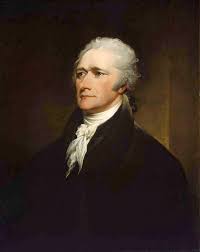Understanding the Legacy of Alexander Hamilton

Introduction
The life and legacy of Alexander Hamilton remain critically relevant today as he played a pivotal role in shaping the United States’ financial system and governance. As one of the founding fathers, Hamilton’s contributions to the nation’s establishment continue to be debated and celebrated, especially in light of recent cultural resurfacings, including the popular musical that has elevated his profile in modern society.
Key Contributions
Born on January 11, 1755, in Nevis, Hamilton’s early life was marked by hardship. However, he excelled academically and eventually moved to the American colonies. During the revolution, he became an aide-de-camp to General George Washington, gaining firsthand experience in leadership and military strategy.
After the war, Hamilton’s influence expanded as he became the first Secretary of the Treasury under President Washington. In this role, he laid the groundwork for a robust American economy. His implementation of tariffs and taxes, along with the establishment of a national bank, were designed to stabilize the young nation’s finances. His report on a national bank in 1790 argued for a strong federal government to foster economic development, advocating for a loose interpretation of the Constitution, which later became a hallmark of his political philosophy.
The Federalist Papers
In addition to his economic policies, Hamilton was a prolific writer and political thinker. Alongside James Madison and John Jay, he authored the Federalist Papers, a series of essays promoting the ratification of the U.S. Constitution. These writings laid the foundation for American political theory and remain essential reading for those studying American government and constitutional law.
The Duel and Legacy
Hamilton’s life took a tragic turn in 1804 when he was fatally wounded in a duel with Aaron Burr. Despite his premature death at 47, Hamilton’s ideas and policies continued to resonate. His vision of a strong federal government versus a states’ rights approach remains a core debate in American politics.
Conclusion
Today, Alexander Hamilton is celebrated not only as a financial innovator but also as a symbol of the American belief in self-made success. His legacy is seen in modern discussions surrounding fiscal policy, governance, and constitutional interpretation. As we consider the central role Hamilton played in forging the nation, it is clear that his influence endures, making his life and work essential to understanding America’s past and future.
